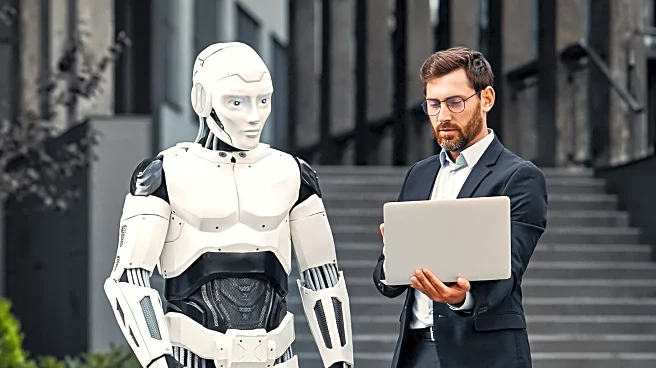What is the story about?
What's Happening?
The rise of artificial intelligence is reshaping the workforce, prompting concerns about job security across various sectors. While some roles, particularly those requiring physical skills, empathy, and judgment, remain insulated from automation, others are increasingly vulnerable. Jobs in public service, healthcare, and law are considered safe due to their reliance on human interaction and regulatory requirements. Conversely, roles involving routine knowledge work, such as transcription and scheduling, face higher risks of automation. The evolving landscape necessitates strategic planning for both employers and employees.
Why It's Important?
The impact of AI on job security is a critical issue as technology continues to advance. Understanding which roles are safe and which are at risk can help workers make informed career decisions and guide employers in workforce planning. Jobs requiring human presence, empathy, and regulation are likely to remain protected, while repetitive tasks are more susceptible to automation. This shift highlights the need for workers to adapt and acquire skills that complement AI, ensuring their relevance in the future workforce.
Beyond the Headlines
The integration of AI into the workforce presents ethical and societal challenges, including the potential for increased inequality and the need for new regulatory frameworks. As AI reshapes job roles, there is a growing emphasis on education and training to prepare workers for the changing landscape. Employers must also consider the implications of AI adoption on employee morale and job satisfaction, balancing technological advancements with human-centric approaches.
















